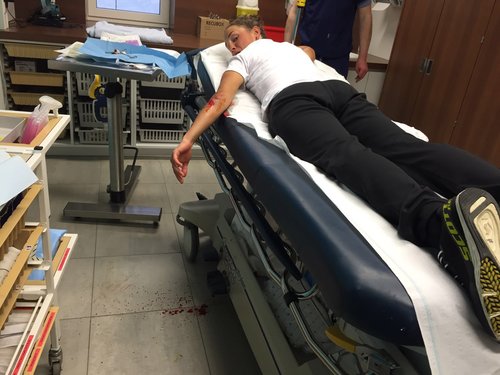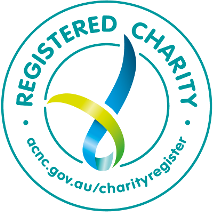Through the pain of depression, a top cyclist finds balance.
This article first appeared as “Mental as Anything” on Lizzie William’s blog. Lizzie is an Australian international cyclist who has had her share of ups and downs – on and off the bike. With permission, we have published it here for the benefit of the athlete community. A candid, real and very insightful article and full credit to Lizzie for opening up.

2016 has brought the most challenging race yet, and that hasn’t been on the bike! No amount of pain, disappointment, crashing, loneliness and homesickness compares to fighting the battle within the mind. This blog is a culmination of diary entries I wrote whilst sitting in my parents home in wintery Melbourne this year.
Not the place I envisioned myself to be.
With the added pressure of being an Olympic candidate, you could say the months leading into the Rio Olympics were far from relaxing. With 3 road spots available and 8 possible candidates, it was always going to be extremely hard to qualify. I was an outside chance, but still a chance. And my life over the past few years has been entirely about taking chances. All I had to do was perform well and gain some impressive results. Easy right? Not exactly.
My dedication and focus started last October 2015. My season began well but slowly as the months rolled on into the spring classics, I began to tire both physically and mentally. Luck wasn’t leaning my way and I found myself sliding along the asphalt (or cobbles) more than I wanted. Dealing with crashing is a part of being a professional cyclist but when they come in succession, it’s hard to swallow. Especially when you’re time poor as my cycling career has been fast tracked. I’ve been forced to learn the trade in 1-2 years and at times this has been a rushed and stressful experience, but also life changing at the same time.
It’s funny how life can drastically crumble around you in what seems a short amount of time.

In April this year I was taking on the famous cobbled sections (or they were taking on me!) of the Ronde Van Vlaanderens, more commonly known as Flanders. A month later I was struggling to get out of bed, living at my parents house in Melbourne, my cycling future unknown. My anxiety and depression became debilitating.
I’ve experienced two periods of crippling depression in my life, lasting up to 4 months at a time. And to be honest, I thought that these times were behind me. However 2016 has given me a run for my money. It’s important for me to share what I have experienced over the past 6 months, not only to help with my recovery, and especially to be open and honest with my team, my family and my friends.
Shame and embarrassment is heavily felt during these bouts of depression and I’m tired of hiding this part of me. I’m not writing this to gain sympathy or recognition but instead educate people about mental health and provide awareness that even the most driven, determined, disciplined and successful individuals can suffer severely from mental health issues.
Signs began to show when I was on tour with the team in Belgium in late March. I was struggling to get out of bed and highly anxious. I was losing my drive and passion to ride. Depression is a sly beast. It creeps up on you, sometimes without you even noticing. But once it has you pinned down, it can be extremely hard to get out of. When you’re ‘in it’, your thoughts are completely irrational. You have this intense feeling of loneliness and hopelessness and its hard to see a clear way out. Coming home was a necessity for me. Not having access to the resources, support and funding needed to manage my anxiety whilst overseas I was drowning alone. Cycling is one of the toughest sports in the world and when your mind is vulnerable, it can become your worst enemy. Self reliance, drive, resilience and adaptability are all necessary qualities to be successful in the high performance life of an elite athlete.
The initial months upon arriving home were extremely tough, not only for myself, but for my partner and parents who witnessed my deterioration. I lost weeks at a time, not leaving my parents home. I created such a small world for myself. A dark, hopeless but ‘safe’ world. In my mind I was free of judgement from the outside, but its not the outside that I should have been concerned about. Instead, the harsh and highly critical judgement that comes from within. That’s what mental illness is.
There is an incredible amount of stigma that comes with depression, especially when it’s revealed or discussed. But this needs to change. This doesn’t help the person with their recovery, instead it only deepens the hole for them to fall further into.
I’ve had to completely re-discover myself stripping everything back, starting with the basics like ‘being present’, practicing mindfulness and yoga on a daily basis, and seeing a sports psych regularly. ‘Slowing down’ both my body and my mind. Taking 5 months off training has allowed me to reflect on what I really want in life and what will give me the most satisfaction and fulfillment. Things like balance, diversity, community, relationships, learning and creativity are all aspects I wish to incorporate in my life.
And I have realised that racing my bike is something I want to continue, but in a more ‘balanced’ and ‘holistic’ sense.
Through much hard work and determination I am back now training on my bike. I just spent a week in the beautiful alpine countryside. It felt a little strange being there without my Orica team mates and staff. But I feel free and happy with the autonomy that it brings. For the second time in my life I’m rediscovering my joy for riding. No one is here to critique my technique or level of fitness, take lactates, tell me what to eat or when to eat and even how to train. Everything is my own choice and I’m only accountable to myself. So I choose to ride with no computer, but instead enjoy looking and listening to the surrounding nature. My focus isn’t on the end result or an event that I want to win, but instead my energy and mental focus is on the process and being present in the ‘now’.
After much consideration I have decided to not return to Europe with Orica-AIS, but instead go back to USA in 2017 and race for Hagens Berman/ Supermint UCI Women’s Team. I will always have fond memories racing with Orica but it’s the year of change for me and I’m excited to tackle my racing with a new and improved mindset.
Lizzie Williams


